Victor D. López's Blog: Victor D. Lopez, page 76
May 19, 2015
Seeking the Antidote for the Poisoned Well of Modern Politics
We’re off to the races again and the current crop of presidential contenders is popping up like so many mushrooms in the night. The coming year will bring with it an endless stream of money-driven ads, personal attacks and talking heads with their polarizing spin intended to align the electorate in accordance with its political charge (Ds to the left, Rs to the right and everybody attacking the center, trying to beat it into conforming with either a D or an R polarity). Liberals are Liberals (except when they re-brand themselves as Progressives, of course) and Conservatives are Conservatives and never shall the train meet in the middle. Once the battle lines are drawn and the likely voters in the middle who cannot be beaten into submission are small enough so that they can be effectively ignored, we go to war in a take no prisoners, the end justifies the means fashion that eventually leads to a “winner” in the D and R boot camp that can lead the country to the usual political civil war that is our election cycle. When the dust settles and the winning general gets the prize of free rent and board at the People’s House for four years with all the golf, free first-class vacations and fund raisers they can manage in order to prepare for the next election cycle. The country is left to lick its political wounds, beaten, bruised, bloodied and blue. Whoever wins, the losers vow revenge and begin an immediate counter-revolutionary campaign to undermine the winner and, if possible, destroy him/her with death by a thousand paper cuts.
We do the exact same thing every year and hope for a different result, turning democracy or people’s rule from the original Greek into democrazy in our Americanized version.
But it need not be this way. Political operatives manipulate us only because we allow them to, because we buy into the polarization and the reduction of complex issues to a simple binary 0/1, black-white, yes no answer that ignores the tremendous shades of grey that any thinking person can detect while looking at any complex issue with a modicum of objectivity. The truth is we don’t want to be bothered with the huge swaths of grey areas and promptly attack people who point to them as delusional, misguided, uninformed, obstructionists who would stand in the way of PROGRESS. Those who worry about the grey areas and fail to see only the black/white choices offered them (be they observers from the left or the right of the political spectrum) are lectured ab infinitum in an attempt to refocus their vision on the black or the white ends of the spectrum. If they do not drink the Kool-Aid and don the required blinders to view the world in the “right way”
Binary thinking is dangerous. All true believers engage in it, be they of the (ultra) Conservative, (ultra) Liberal, Communist, Socialist, Fascist, Anarchist or other absolutist persuasion. Racists use it. So do race-baiters. So do misogynists. It leads to the “if you’re not with us you’re against us” ethos of all radical wingnuts that makes it a capital offense (quite literally, all too often) to hold an opposing point of view. It makes it impossible for people to have honest disagreements since anyone who disagrees with the “right-thinking” dogma are “enemies” to be “destroyed” by “any means necessary.” The seething contempt we see in political attack ads (and the somewhat subtler versions in too many supposedly objective “news reports,” interviews and “round table” discussions in both network and cable news channels) reinforces this type of binary thinking. The cheap tricks of partisans who try to stifle debate by obstructionist tactics or simply by raising their voice in an attempt to drown out opposing points of view also reinforce and perpetuate this mindset.
The political well has been poisoned for too long—from the beginning of our fledgling democracy in fact (for all of their many strengths and intellectual gifts even great men like Jefferson and Adams behaved very badly in the political arena and contributed in no small way to the brackish political waters that we’ve been forced to drink from their time forward). But its waters are not beyond redemption. All that is needed is an electorate willing to embrace the following simple rules:
Recognize binary thinking for what is: the providence of the intellectually lazy, the weak minded and the uninformed. There are very few political issues with unambiguous black-and-white answers. Most issues that affect our society, including issues of law, ethics and public policy, are highly nuanced. To the man with the hammer the whole world is a nail. But we are all blessed with a far richer set of tools in our personal toolboxes garnered from our life experiences, our education, our independent study, our work and our avocations. People who wield only a hammer will have the same response to every issue: “we need more taxing and spending and equitable distribution of wealth” for those who wield the hammer with the left hands, or “we need to lower all taxes, decrease all government regulation and empower business” for those who wield it with their right hands. Unfortunately, hammers wielded by the left or right hand are just at clumsy and destructive when used on screws and absolutely useless when attempting to loosen or tighten a nut or mend a cracked copper pot. Hammers have their uses, but they cannot replace screwdrivers, wrenches or welding equipment and any effort to put them to those tasks will inevitably yield disastrous results that will be made only worse by increased hammering.
Acknowledge and respect the viability of opposing points of view. Sometimes opposing points of view are irreconcilable with our own and compromise is simply impossible. But this conclusion should not be reached lightly and must be acknowledged as the exception, not the rule, in political discourse. I would no more try to convince a Marxist to adopt my point of view than I would try to pour the contents of the Atlantic Ocean into a hole in the sand in my local beach. A Marxist trying to convince me to adopt Marxism as my political philosophy would have a similar fool’s errand. Before reaching my conclusion, however, I actually read Marx and Engels, took numerous political science classes as an undergraduate student, and even a class in anarchism. I believe I understand the basic tenets of Marxism, Anarchism, and for that matter Fascism far better than the average political commentator or the average demonstrator at any fringe rally. I understand too the basic differences between the Liberal/Progressive and Conservative ideologies, and the essential tenets of the Democratic and Republican parties. I know I can articulate them in any debate at least as well as the average politician who proudly wears any of those labels. I also understand the roots of those differences, the different world views that inform them and the equally different schools of ethics that justify them as well. Law is my area of expertise. But politics and ethics are also long-standing subjects of interest to me. The connections between law, jurisprudence, politics and ethics are self-evident. Understanding and respecting other points of view is the first step to building meaningful bridges towards compromise.
There are many paths to good public policy. No ideology can claim to have cornered the truth market. People of good will who have the best interest of society in mind must embrace this simple fact. Lasting compromise that is acceptable to people with very different political philosophies can only be reached when neither side is asked to betray its core beliefs. On some issues, compromise is simply not possible because it would require one side to cross a bright line that it is unable to cross in good conscience. Abortion is one such issue where irreconcilable ethical and religious views can make compromise unacceptable to people on both sides of the reproductive freedom debate with inflexible views on the subject. But no such bright line exists as to the vast majority of political issues. An honest understanding of and respect for opposing points of view makes it possible for us to view the world through others’ eyes, to understand their basic assumptions and to plot a viable path towards common goals that circumvents unscalable peaks and catastrophic chasms.
I had the pleasure of a recent dinner and a couple of beers with my dearest friend since High School. He was the best man at my wedding, a person who for me personifies integrity and in whom I have absolute and unquestionable confidence. As is always the case when we spend time together (even over the phone) we turned to the subject of our very different politics and world views and how we’ve been able to bridge these on every single issue since our late teens. In many respects we could not be more different. He is tall, very dark and very handsome. I am on the short and quite dumpy side these days. He was always an excellent athlete and I always tended more to the sedentary couch potato type. He is the strong, quiet type—usually reserved. I am more boisterous and outwardly emotional. He is a life-long Met fan—before the miracle Mets of 1969– and I’ve always rooted for the Yankees, even in the painful 60s and 70s. He is a left of center life-long Democrat and I am a right of center life-long Republican. He is a Southern Baptist and I a Catholic. (He was a delegate for the People’s Party when we were in college while I was a Reagan republican then and now.) You get the point. Yet we have been the closest of friends since our first year at Brooklyn Tech where we first met. We are both very bright and, in our own way, very opinionated. We are both very interested in politics. Neither his nor my politics are in the least bit motivated by self-interest. We are kindred spirits in this and in too many other things to list here. Rather than politely tolerate our differences on politics (or sports, for that matter), we’ve spent many hundreds of hours in deep discussions about them—arguing, advocating and invariably always—ALWAYS—reaching a compromise position that we could both live with were we able to set policy ourselves. We’ve even good naturedly ribbed one another about the people we’ve supported over the years, and discussed serious concerns about their weaknesses from our disparate points of view. No issue has been off the table ever—not the death penalty, not abortion, not gay marriage, not race relations, not welfare reform, not absolutely anything that we both feel passionately about and often differ on. We’ve never parted angry from intense discussions and we’ve both had a very real impact on each other’s world view—a discussion we turned to again at our most recent meeting. Our secret is very simple: we have absolute, unshakeable trust in one another and in one another’s integrity. Our belief systems are strongly held but not inflexible. We truly know and understand the other’s world view and can articulate each other’s arguments without a thought—and not in a mocking or condescending way or simply to set up a straw man that we can then knock down. The fact that we disagree on some really important issues gives us both equal pause as to the absolute righteousness of our own point of view. We keep each other honest out of the simple and genuine respect for the other’s views.
As the political campaigns gear up, by all means join the debate, call out politicians who are hypocritical, clueless or corrupt, and argue for your point of view. But show respect for opposing points of view that reasonable people may hold with which you happen to disagree. Governor X who is a Republican may be a complete idiot. That does not make all republicans idiots. Senator Y who is a democrat may be corrupt and clueless, that does not make other democrats corrupt or clueless. Call out public servants who do not serve the public well, but don’t poison the well by hyperbolic, broad-brush attacks on parties or political philosophies. And never simply parrot what others say. That is good advice that goes well beyond politics.


May 9, 2015
Zarb Alums Reel in Investor on ABC’s ‘Shark Tank’
 Originally posted on Zarb Means Business:
Originally posted on Zarb Means Business:
What started as a friendship in 2001 during their freshman year at Hofstra has blossomed into an innovative business venture for Frank G. Zarb School of Business ’05 alums Avin Samtani, Rob Peck, and Jonathan Kinas, who recently pitched their product –AquaVault – on ABC’s “Shark Tank,” and hooked investor Daymond John, who agreed to invest $75,000 for a 25 percent stake in their company.
AquaVault is a portable personal safe that attaches to beach furniture, bicycles, strollers and basically any outdoor apparatus to safely stow your valuables while you have fun in the sun. Samtani, Peck and Kinas unlocked the idea after they got burned at a high-end resort in South Beach, where they were staying for a wedding they attended in 2012.


Zarb Alums Reel in Investor on ABC���s ���Shark Tank���
 Originally posted on Zarb Means Business:
Originally posted on Zarb Means Business:
What started as a friendship in 2001 during their freshman year at Hofstra has blossomed into an innovative business venture for Frank G. Zarb School of Business ���05 alums Avin Samtani, Rob Peck, and Jonathan Kinas, who recently pitched their product ���AquaVault ��� on ABC���s ���Shark Tank,��� and hooked investor Daymond John, who agreed to invest $75,000 for a 25 percent stake in their company.
AquaVault is a portable personal safe that attaches to beach furniture, bicycles, strollers and basically any outdoor apparatus to safely stow your valuables while you have fun in the sun. Samtani, Peck and Kinas unlocked the idea after they got burned at a high-end resort in South Beach, where they were staying for a wedding they attended in 2012.


May 8, 2015
Short Story Preview: End of Days
Victor D. L��pez
Copyright Victor D. L��pez 2014
Available at Amazon, iBooks, Barnes & Noble,
Smashwords,
and other retailers
Victor D. L��pez is a tenured Associate Professor of Legal Studies in Business at Hofstra University���s Frank G. Zarb School of Business. He holds a Juris Doctor degree from St. John���s University School of Law and a B.A. from Queens College, C.U.N.Y. (English Honors Program ��� Writing) and is a member of the New York State Bar, New York State Bar Association, the Academy of Legal Studies in Business (ALSB) and the North East Academy of Legal Studies in Business (NEALSB). He has been an academic for more than 25 years and, prior to joining the Hofstra University faculty, he served as a tenured Professor of Business, as Dean of Business and Business Information Technologies, and as Academic Dean in urban, suburban and rural public and private academic institutions.
Professor L��pez is the author of several textbooks and trade books and has written poetry and fiction throughout most of his life, some of which has been published in anthologies and literary magazines.
(Printed through CreateSpace and Kindle Direct, 2012)
OfPain and Ecstasy: Collected Poems (Printed through Kindle Book Publishing and CreateSpace, Summer 2011)
IntellectualProperty Law: A Practical Guide to Copyrights, Patents, Trademarks and TradeSecrets (Printed through Kindle Book Publishing and CreateSpace, Summer 2011)
Business Law: An Introduction 2e, Textbook Media, 2011. (text, test bank, and instructor���s manual) Available at http://www.textbookmedia.com
Business Law and the Legal Environment of Business 2e, Textbook Media 2010. (text, test bank, and instructor���s manual) Available at http://www.textbookmedia.com
Free and Low Cost Software for the PC, McFarland & Company 2000. [out of print]
Legal Environment of Business, Prentice Hall 1997. (text, test bank and instructor���s resource manual) [out of print]
��Case and Resource Material for the Legal Environment of Business, Prentice Hall 1997.
, Richard D. Irwin/Mirror Press 1993. (text, test bank and instructor���s resource manual) [out of print]
http://www.amazon.com/Victor-D.-L%C3%B3pez/e/B001KMII74, McFarland & Company 1990. (coauthored with Kenneth J. Ansley) [out of print]
End of Days
God spoke to me last night. No, I am not schizophrenic or a Jesus freak. Nor am I a conspiracy theorist (well, except for JFK���s assassination, of course–unless the principles of quantum mechanics somehow apply to bullets fired from book depositories with inhuman rapidity to perform a dance macabre through the bodies of governors before striking their intended target), but I know precisely the series of events that will result in the end of the world and will eventually give birth to a new universe. It came to me in a dream. No, really, it did.
It all started pretty much like a bad Hollywood disaster flick (sorry, I know that���s redundant) with well funded mad scientists doing what comes natural in fiction as well as in fact. ���Build us a big Hadron Supercollider, and we���ll find the elusive Higgs boson God particle. Maybe we���ll even come up with a unified theory that incorporates the pesky behavior of subatomic particles and allows us to demystify quantum mechanics once and for all.��� It turns out, not surprising to anyone, other than scientists of course, that a little knowledge is a dangerous thing, and that allowing children to play unsupervised in a chemistry lab or with a super-duper, neat-o particle accelerator is not such a good thing after all. Who���d have thunk it?
The first hint that something was just a bit off-kilter came in the form of assurances by project scientists delivered with the smug expressions and thinly veiled contempt with which they usually approach any communication with the unwashed masses, that yes, miniature black holes could probably be created by subatomic particles accelerated at nearly light speed through a 17-mile circular particle accelerator and forced to collide in a massive release of energy, but such black holes would quickly dissipate. ���No,��� they smiled complacently, ���there is absolutely no danger in these experiments.���
The second hint of a problem (and by hint I mean claxons going off, red lights flashing, and Robby the Robot���s accordion arms waving wildly while proclaiming ���danger, Will Robinson!���) came when the Hadron Supercollider suffered some unspecified problems that caused it to be shut down for months on end after its first full-scale test. When the 17-mile supercollider was once again brought back on line, headlines proclaimed the countdown would begin again for the end of the world. Smile, snicker, hah-hah. What was not reported was the actual reason for the shutdown, since no one, including the geniuses running the experiments, knew the real cause: a miniature black hole that did not quickly dissipate in the lab as expected and caused a nearly catastrophic shutdown as it drilled an invisible hole a few molecules wide, eagerly sucking up anything that crossed its tiny event horizon, as it accelerated slowly but inexorably downward, worming its way through the containment chamber, rapidly vacuuming vital bits of the temperamental equipment on its way to the center of the earth.
Not to worry, though, it is still relatively small despite its voracious, unquenchable appetite, though it is exponentially increasing its mass as it swings like a pendulum through the earth���s core and beyond it in decreasing arcs that will eventually settle it at the earth���s core. It will be many months and perhaps years before we begin to feel the cataclysmic seismic effects of its inexorable violation of the earth���s core, and longer still before the entire planet and every living thing in it is sucked into its vortex, followed thereafter by the moon, and then the outer planets as the growing black hole continues its feeding frenzy, eventually consuming the entire solar system and Sol itself.
But that would be many years, perhaps millennia, in the future given the diminutive size of the black hole at present. And scientists still believe that the equipment failure was unrelated to its actual cause since the unreported black hole the initial full-scale test produced dissipated soon after its formation according to their classified reports. Therefore, the supercollider was repaired, and billions or Euros later, the scientists have their plaything once more and science is free to continue its happy march towards oblivion. If it ended here, we���d have little to worry about in the short term, other than perhaps ever-increasing seismic activity. Even the hungriest little black hole needs a great deal of time to ingest a planet from the inside out, and if later laboratory-created black holes don���t ingest other vital pieces of sensitive equipment on their way to joining their older brother down the rabbit hole in their inexorable journey to swallow our blue planet, we���d probably kill off our species through war, pestilence, famine or other forms of humanity���s endless capacity for galloping stupidity long before daddy���s and mommy���s little darlings consumed the world.
If my prescient dream had ended there, I���d shake it off with a smile and go about my day without another thought, compartmentalizing the certain knowledge of future doom in the nether regions of my mind, right next to the knowledge of the unsustainability of our ballooning federal and state deficits and the possibility of an asteroid hit that would once again eradicate most plant and animal life on this planet.
Unfortunately, scientists are not the only ones who like to play God. They are just more tragic and contemptible in their efforts at doing so because they should know better. They are like amoebas attempting to extrapolate the secrets of the universe by examining in minutest detail the drop of fetid swamp water atop a floating leaf that they inhabit. In a very real sense, scientists are among the smartest amoebas, all hail their boundless wisdom! But others like to play in the hedonistic God sandbox, too. And here is where my prescient dream grows infinitely darker.
It so happens that terrorists pay attention to science. Science, after all, brought us TNT, the A-bomb, the H-bomb, weaponized anthrax and lots of other cool goodies that are wonderful additions to the terrorists��� toolkits. As it happens, one particularly well funded, well connected group in the Middle East thinks it a grand idea to blow Israel off the face of the earth before that even better funded, and better connected state has the chance to do the same to them or to their proxy states. They have acquired a gaggle of disaffected, under-employed Russian physicists and funded them generously to come up with ���outside-the-box��� ideas for a doomsday device on the cheap. They did not have 17-mile supercolliders to play with, and Jihadist physicists are a rare breed. But not to worry, they had something better: money, lots of it, and the ability to entice scientists who view themselves above pedantic, bourgeois notions of ethics and for whom science is the only religion.
Undaunted by any notions of right and wrong and guided by the simple principle that ���if it can be done, it must be done,��� these brilliant men and women soon developed a working experiment that presented an elegant solution that their benefactors immediately approved.
Their plan was exquisitely simple and required very little by way of resources beyond two suitcase nukes that could be easily obtained either from Russia (cheap, old-world loose nukes listed simply as ���missing��� from the former Soviet inventory), or spanking new, state-of-the-art but untried ones from the secret Pakistani stash. They opted for the Russian suitcase nukes, in part because they did not want a trusted ally compromised in the event that their experiment failed to attain the desired end.
[ ***** END OF PREVIEW ***** ]
Author’s Amazon page: http://www.amazon.com/-/e/B001KMII74��
Author’s Web Page: http://www.victordlopez.comhttp://www.victordlopez.com


May 7, 2015
Smashwords Author Interview: Question #13 — What are you working on next?
I’m winding down a sabbatical leave as I write this. This semester I completed research on usury laws in all 50 states and how these are in effect undermined by federal law. The research was started last summer and completed in late January, with a paper completed in early April and presented at the NEALSB annual conference in late April. It is now out for a first round of reviews in selected first-tier journals and law reviews. I am also currently in the process of researching “good Samaritan” statutes in all 50 states, a project that will continue beyond the summer and will form the foundation for a paper completed before the end of the fall 2015 semester. This summer, I will also work on a new, expanded 3rd edition on my Business Law and the Legal Environment of Business for my current publisher, Textbook Media Publishing, that should be out early next year. Not much time for fiction or poetry projects in the coming year, I’m afraid, nor for work on my first novel that has been mostly on hold in mid-stream for the better part of a decade due to time constraints.


May 1, 2015
Eternal Quest – Free speculative fiction complete short story through the end of May
On its surface, this speculative fiction short story (7,800 words) deals with one man’s obsessive quest for knowledge and the devastating price he must pay for the knowledge he ultimately acquires. Beneath the surface, this story is about deep friendships complicated by unrequited love, split loyalties, the interplay of id, ego and superego, (or Plato’s appetites, reason and the spirited element that Freud “borrowed” and “re-labeled”) and existentialist lessons learned much too late in life.
It is about looking for truth and meaning in all the wrong places and about the deep tragedy of misdirected efforts in the single-minded pursuit of all the wrong things. It is also about love, and the noble and often tragic self-sacrifice that true friendship requires, about the pain of unrequited love and split loyalties, and ultimately the very real tragedy of too many lives spent in the single-minded pursuit of lesser important things. Nothing else I have ever written since those happy, productive days as a college sophomore means more to me, and it remains little changed from the original.
Through the end of May 2015, you can download this short story free of charge here:
Smashwords – Eternal Quest. The short story will also be available for free download later this month at Barnes and Noble, iBooks, Amazon and other leading retailers. I hope you enjoy it.
Also from Smashwords and other leading retailers:

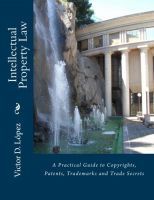
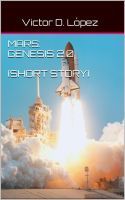



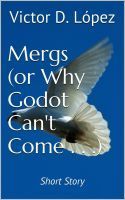





April 28, 2015
Leading the World in the Wrong Direction: Is It Time for the United States to Adopt the World Standard “Loser Pays” Rule in Civil Litigation?
In nearly all countries around the world, the loser in a civil law suit has to reimburse either all or at least a significant part of the reasonable legal expenses of the prevailing party. This is commonly referred to as the “loser pays” rule and helps to discourage litigation–especially litigation of questionable merit as plaintiffs are less likely to sue if they know they will have to pay both their own legal fees and that of the winner if they do not prevail. The United states also conformed to this rule which we commonly refer to as the “British Rule” —�� which is itself a misnomer since it is not only the rule in Great Britain but also in nearly all world jurisdictions. By contrast, the “American Rule”�� requires each party to pay their own legal expenses whether they win or lose in court.
The genesis of the rule can be traced to the American Colonies and was directly related to allowing lawyers to raise their legal fees without fear that higher fees discouraging litigation by individuals who might fear having to pay not only their own (now higher) legal fees, but also those of the other party if they did not prevail in court. Today the debate is largely framed on “access to justice” arguments by scholars and practitioners who support the status quo.�� The argument is that if the loser must pay the reasonable legal fees fees of the winner (in whole of in part), then persons of limited means may be discouraged from suing out of fear that they could not afford to lose in court.
Reasonable people may differ on whether the “American Rule” benefits society or merely lawyers who unquestionably are the intended and primary beneficiaries of a rule invented by them and for their benefit in pre-revolutionary colonial days. A good friend and colleague at Hofstra University’s Frank G. Zarb School of Business, Eugene T. Maccarrone, and I co-authored a paper on the subject that should be required reading for all informed Americans on an issue that not only helps to maintain our dubious status as the most litigious nation on the face of the earth while inflating the cost of litigation and contributing to the backlog of cased in civil courts that require a delay of up to five years before a civil case ever gets to trial. The article was published in Vol 32 of the North East Journal of Legal Studies (NEJLS) pp. 1-20 (Fall of 2014). This double-blind, peer reviewed journal was previously available by subscription only to law schools and universities but, thanks to the efforts of its Editor in Chief, Dr. Sharlene A. McEvoy of Fairfield University, an electronic copy of the journal�� is now also available free of charge in electronic PDF format at this link: http://nealsb.info/j2014.html.
I urge you to read the article in its entirety and to forward it to anyone who may be interested as the issue is unlikely to be aired publicly outside of academic circles–and not even there.


April 27, 2015
Unauthorized Practice of Law in the U.S.: A Survey and Brief Analysis of the Law
The practice of law in the United States is very different from that in every other country, especially countries that are not former colonies of Great Britain and therefore follow the world-standard civil law system rather than the common law system that has its roots in England. As a result, the U.S. does not have a unified system of law and the law changes from jurisdiction to jurisdiction from state to state and even from federal circuit to federal circuit in significant ways. As a result, the practice of law is much more complicated in the U.S. than in most other countries, including Great Britain and her other former colonies. We have more lawyers and more litigation per capita than just about anywhere else on earth not because of the cultural or psychological reasons sometimes attributed by commentators, but rather because our system is designed on an adversarial model where lawyers (and only lawyers) are allowed to provide legal advice and representation�� on both complex and routine matters that are often handled by (much less expensive) non-lawyer paraprofessionals in most other parts of the world. Indeed, representing another person or even giving legal advice is a misdemeanor or felony in most every state that can result in criminal prosecution and jail time. For a full discussion of the issue you can read an article I published in the North East Journal of Legal Studies in Fall 2011 edition (pages 60-84). The journal has recently been digitized and is now available free of charge online as well as in its original bound edition. The automated digitizing process introduced some minor glitches but the article is quite legible and I am grateful that it is now available beyond law libraries to the general public. You can access the volume in question at the following link (click on my name or the article’s name from the link that follows and the appropriate volume will be downloaded in PDF format):��http://nealsb.info/j2011.html


April 13, 2015
Free through the end of April 2015 – Two speculative fiction short stories
My Mindscapes short story collection is now available as an audiobook through Audible and Amazon. The two shortest stories in that ten short story collection (Justice and The Riddle of the Sphinx: Solved) are currently available for free download from Smashwords in a variety of eBook formats and can also be downloaded free of charge from Barnes and Noble and iBooks. You can download a free copy by clicking on the Mindscapes link for the book here.��
The Mindscapes audiobook version is read by Dale Wilcox, but if you���d like a different (rough, unedited) audio version of my short story Justice read by me, you can access (an equally rough) YouTube book trailer by clicking on the Mindscapes link from my YouTube listings here.
A preview audio sample from the actual audiobook is available at Audible here.


April 7, 2015
Illegal Immigration: Economic, Social and Ethical Implications (Lopez, Victor D., NEJLS Vol 22 pp. 45-66 (2009)
My article, Illegal Immigration: Economic, Social and Ethical Implications, published in Vol. 29 of the North East Journal of Legal Studies (NEJLS), can now be accessed in its entirety in digitized form as well as in the original printed journal courtesy of NEJLS. You can click on the link below and then on the article’s title to access the article free of charge.

Victor D. Lopez
- Victor D. López's profile
- 11 followers



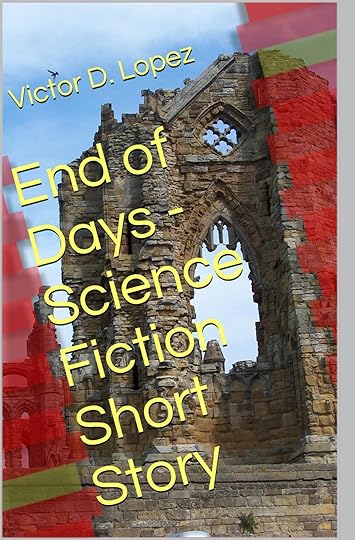

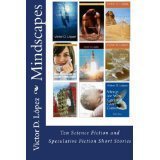
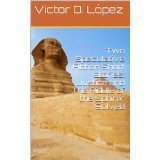
![Mindscapes: Ten Science Fiction and Speculative Fiction Short Stories | [Victor D. Lopez]](https://i.gr-assets.com/images/S/compressed.photo.goodreads.com/hostedimages/1429055587i/14523670.jpg)

